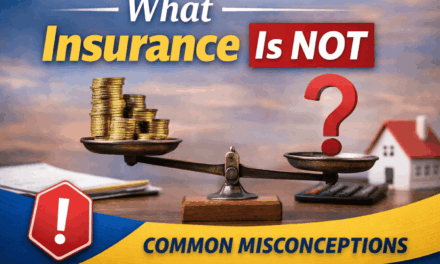
What Do You Mean by Insurable Interest

What do you mean by insurable interest? This term is crucial in the world of insurance. It refers to your financial stake in the insured item or person. Understanding insurable interest can help you make better decisions when purchasing insurance policies. Let’s dive into this concept, explore its importance, and understand its applications in different types of insurance.
Table of Contents
- Defining Insurable Interest
- Why Insurable Interest Matters
- Insurable Interest in Different Types of Insurance
- Establishing Insurable Interest
- Insurable Interest in Practice
- Challenges and Misconceptions
- Legal Aspects of Insurable Interest
- Legal Precedent on Insurable Interest: The Case of Lucena v. Craufurd
- Case Summary
- Impact of the Decision
- Conclusion

Defining Insurable Interest
Insurable interest means you benefit financially from the continued existence of the insured item or person. Conversely, you would suffer a financial loss if the insured item or person were damaged or lost. This concept ensures that insurance is used as a tool for risk management rather than a means for profit.
In simpler terms, you have an insurable interest if the loss or damage of something would impact you financially. For example, you have an insurable interest in your home, car, health, and even your loved ones.
Why Insurable Interest Matters
Insurable interest is a fundamental principle in insurance. It helps prevent moral hazards and fraudulent claims. Here’s why it matters:
- Prevents Gambling: Without insurable interest, people could take out policies on things they have no financial stake in, turning insurance into a form of gambling.
- Encourages Genuine Risk Management: Insurable interest ensures that people buy insurance to protect against real financial losses, not to make a profit from unfortunate events.
- Legal Requirement: Most jurisdictions require insurable interest for an insurance contract to be valid. This legal requirement protects both insurers and policyholders.
Insurable Interest in Different Types of Insurance
Insurable interest applies to various types of insurance, each with unique considerations. Let’s explore how it works in life, health, property, and liability insurance.
Life Insurance:
In life insurance, insurable interest typically exists between close family members or business partners. You can take out a life insurance policy on someone if their death would cause you financial hardship.
Examples of insurable interest in life insurance include:
- Spouses: You have an insurable interest in your spouse because their death would impact your financial situation.
- Parents and Children: Parents have an insurable interest in their children, and vice versa, especially if there are financial dependencies.
- Business Partners: Business partners can take out life insurance on each other to protect the business in case one partner dies.
Health Insurance:
Insurable interest in health insurance is straightforward. You have an insurable interest in your own health, as medical expenses can be significant. Employers also have an insurable interest in their employees’ health to ensure a healthy workforce.
Property Insurance:
Insurable interest in property insurance means you must have a financial stake in the property you want to insure. This applies to homeowners, renters, and even businesses.
Examples include:
- Homeowners: You have an insurable interest in your home because its loss or damage would cause you financial harm.
- Renters: Renters have an insurable interest in their personal belongings within the rented property.
- Businesses: Businesses have insurable interest in their buildings, equipment, and inventory.
Liability Insurance:
In liability insurance, insurable interest means you have a stake in avoiding liabilities that could cause financial loss. This applies to both individuals and businesses.
Examples include:
- Individuals: You have an insurable interest in protecting yourself against potential lawsuits or claims.
- Businesses: Businesses have an insurable interest in avoiding liabilities arising from their operations, products, or services.
Establishing Insurable Interest
To establish insurable interest, you need to demonstrate a financial relationship with the insured item or person. This relationship must be present at the time of the insurance policy’s inception and, in some cases, at the time of loss.
Examples of Establishing Insurable Interest:
- Homeowners: Provide proof of ownership, such as a deed or mortgage statement.
- Business Owners: Show business ownership documents or financial statements.
- Life Insurance: Demonstrate a financial dependency or relationship, like a marriage certificate or business partnership agreement.
Timing of Insurable Interest:
The timing of insurable interest can vary depending on the type of insurance. Generally:
- Property and Liability Insurance: Insurable interest must exist both when the policy is purchased and at the time of the loss.
- Life Insurance: Insurable interest is typically required only when the policy is purchased, not at the time of the insured’s death.
Insurable Interest in Practice
Understanding insurable interest helps you navigate the insurance process more effectively. Let’s look at some practical examples of insurable interest in action:
Scenario 1: Homeowner’s Insurance
Imagine you buy a house and take out a homeowner’s insurance policy. You have an insurable interest because you would suffer financially if your home were damaged or destroyed. Your insurer requires proof of ownership to confirm your insurable interest.
Scenario 2: Life Insurance for Business Partners
You and your business partner decide to take out life insurance policies on each other. You have an insurable interest because your partner’s death would impact the business financially. The insurance provides financial protection to help the business survive such a loss.
Scenario 3: Health Insurance for Employees
As an employer, you provide health insurance to your employees. You have an insurable interest in their health because a healthy workforce is essential for productivity. This insurance helps cover medical expenses, ensuring your employees stay healthy and work efficiently.
Challenges and Misconceptions
Understanding insurable interest can sometimes be challenging due to misconceptions and complexities in insurance policies. Here are some common challenges and how to address them:
Misconception: Anyone Can Be Insured
Some people believe they can insure anyone or anything. However, without insurable interest, the insurance contract is invalid. Ensure you have a legitimate financial stake in the insured item or person.
Challenge: Proving Insurable Interest
Proving insurable interest can be complex, especially in life insurance for non-traditional relationships, like friends or distant relatives. Providing documentation and demonstrating financial dependency can help establish insurable interest.
Misconception: Insurable Interest Is Not Required
Some might think insurable interest is unnecessary for certain types of insurance. However, insurable interest is a fundamental principle in all insurance types. Understanding this helps you avoid invalid contracts and potential claim denials.
Legal Aspects of Insurable Interest
The legal aspects of insurable interest vary by jurisdiction but generally follow similar principles. Most laws require insurable interest to validate an insurance contract. This requirement protects both insurers and policyholders.
Legal Requirements:
- Contract Validity: Insurable interest is essential for a valid insurance contract. Without it, the contract can be declared void.
- Claim Approval: Insurers verify insurable interest when processing claims. Lack of insurable interest can result in claim denial.
- Fraud Prevention: Insurable interest helps prevent insurance fraud by ensuring policies are taken out for genuine risk management.
Jurisdictional Differences:
Different regions may have specific regulations regarding insurable interest. Understanding local laws helps you ensure compliance and avoid legal issues.
Legal Precedent on Insurable Interest: The Case of Lucena v. Craufurd
One of the most significant legal precedents regarding insurable interest is the case of Lucena v. Craufurd (1806). This case established critical principles about insurable interest in English common law, which has influenced legal systems in many jurisdictions.
Case Summary
Citation: Lucena v. Craufurd (1806) 2 Bos. & P.N.R. 269, 127 Eng. Rep. 630 (1806)
Facts:
The case involved the capture of Dutch ships by the British during wartime. The British commissioners had insured the cargoes of these captured ships before the ownership was officially transferred to them. When the ships were lost at sea, the commissioners sought to claim the insurance.
Issue:
The central issue was whether the British commissioners had an insurable interest in the cargoes of the ships at the time they insured them, given that the ownership had not yet been formally transferred.
Decision:
The court held that the commissioners did not have an insurable interest in the cargoes at the time of insurance. They had a “hope or expectation” of acquiring the cargoes, but this did not constitute an insurable interest as it did not involve a legal or equitable title.
Key Principle:
The court’s decision established that insurable interest must involve a legal or equitable right in the subject matter of the insurance. Mere expectation or hope of obtaining an interest in the future does not satisfy the requirement for insurable interest.
Impact of the Decision
Legal Standard:
The Lucena v. Craufurd case set a precedent that for a valid insurance contract, the policyholder must have a current legal or equitable interest in the insured property or life at the time the insurance is taken out.
Prevention of Speculation:
This case reinforced the principle that insurance cannot be used as a tool for speculation. It ensures that insurance serves its primary purpose of protecting against actual financial loss rather than acting as a form of gambling.
Global Influence:
The principles established in Lucena v. Craufurd have been adopted and applied in various legal systems worldwide, forming the foundation for modern interpretations of insurable interest in insurance law.

Conclusion
The case of Lucena v. Craufurd is a landmark decision that clarified the concept of insurable interest in insurance law. It established that insurable interest requires a legal or equitable stake in the insured subject, preventing insurance from being used for speculative purposes. This case remains a cornerstone in understanding and applying the principle of insurable interest in legal contexts globally.
By understanding insurable interest and its legal foundations, you can make informed decisions, avoid legal pitfalls, and ensure your insurance policies are valid and effective





















